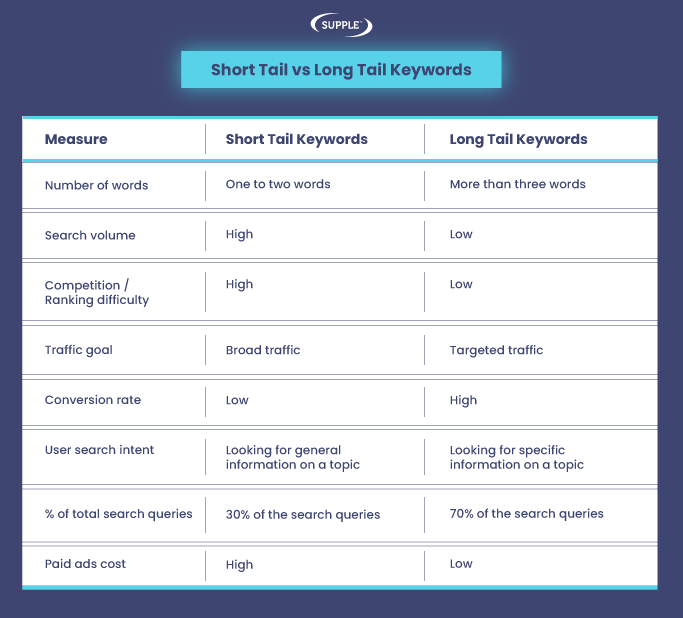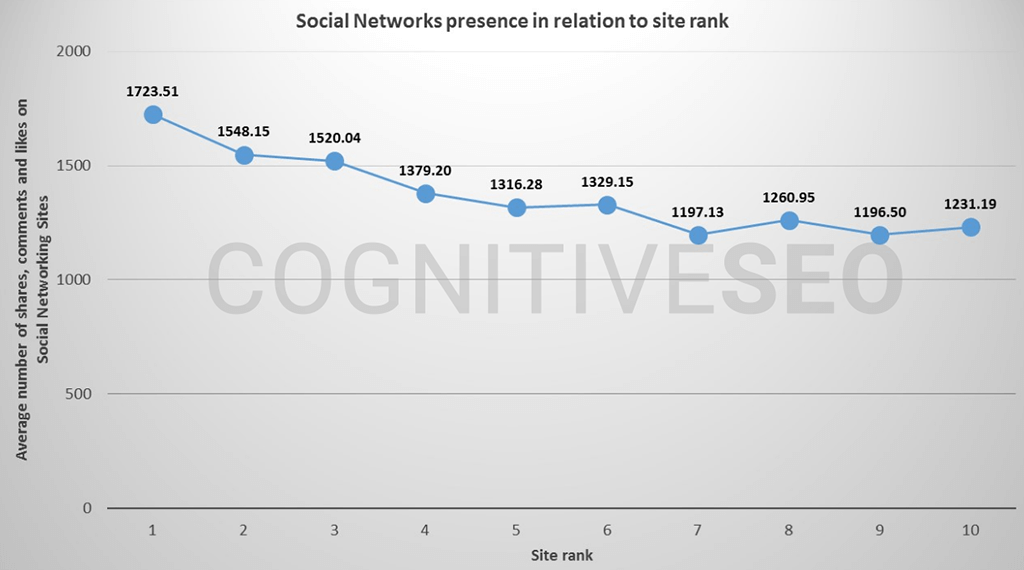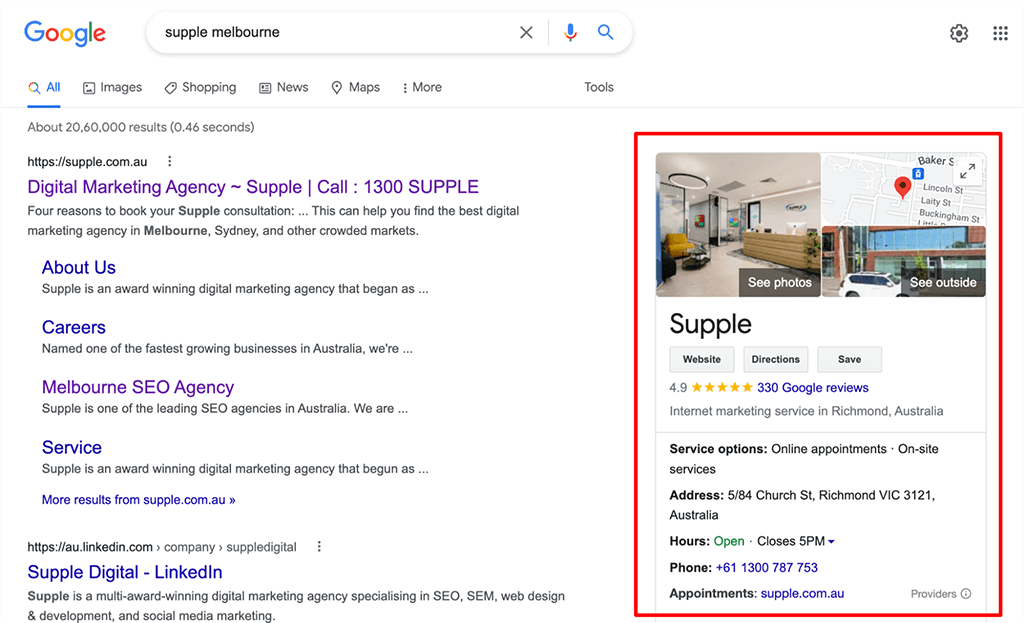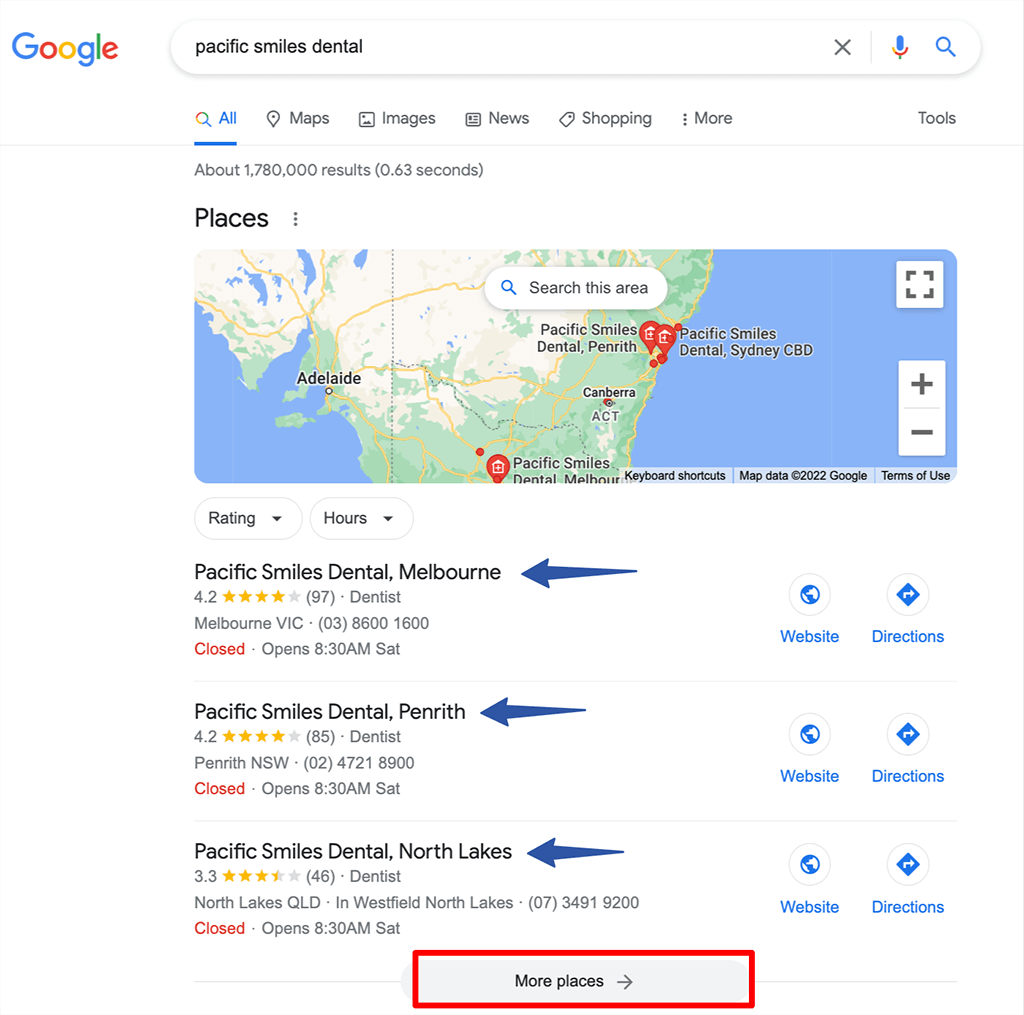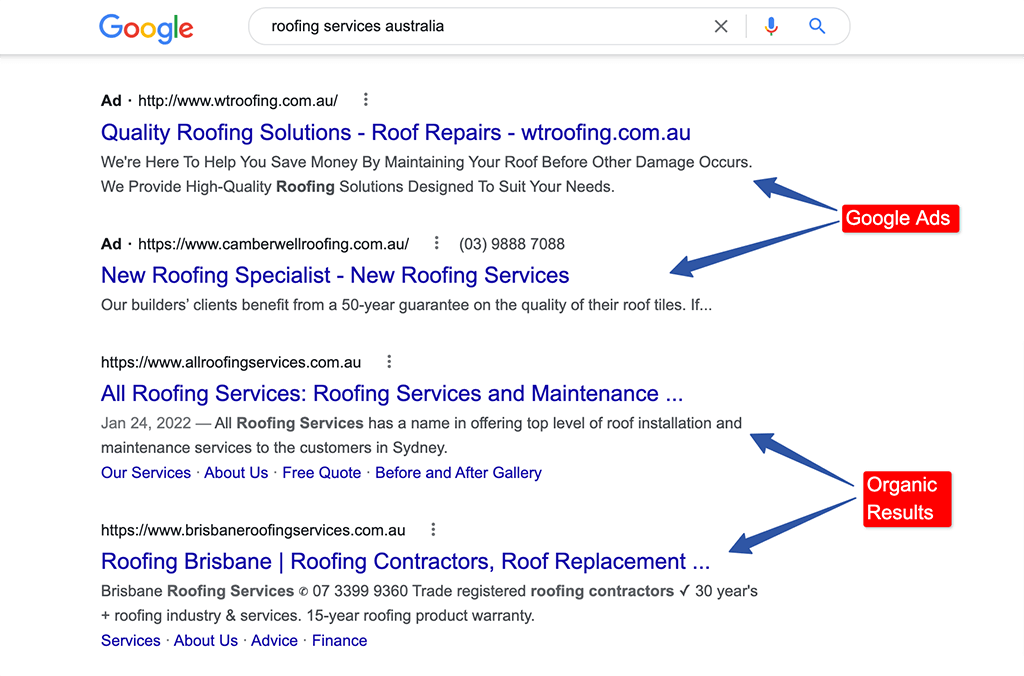How Small Businesses can Outrank Big Brands on Google?
If you’re a small business owner or startup founder who believes that “Ranking on Google is a privilege available only to big brands”—let us tell you, it’s a myth.
Google is an excellent platform for all businesses irrespective of size and scale. All you need to understand is how SEO works and build your website accordingly.
In this guide, you’ll learn how your Small Business SEO can help your website can outrank big brands on Google.
But first, let’s knock off the “Big Brands SEO” myth.
Debunking the “Big Brands SEO” Myth
The big brands may have larger sites and thousands of webpages indexed but it doesn’t make them better sites. Nor does Google prefer ranking the big brands over smaller ones.
Here’s Google’s John Mueller debunking this SEO myth:
-
“So it’s definitely not the case that if you have more pages indexed that we (Google) think your website is better.”
Thus, big sites don’t necessarily have an advantage over smaller sites. It’s just that big brands that rank well might be investing more resources in creating content and website experiences that genuinely solve their audience’s problems.
That’s why they may have established a topical authority in their niche over time. As a result, users trust that brand and keep revisiting the site. This can have an SEO advantage
But let’s put things into perspective: A website with 100 pages (or even less) of super valuable content can outrank a competing site with 1000+ pages of mediocre content.
Let’s find out how.
How your Small Business can Outrank Big Brands on Google
You can outrank the big brands on Google over a period of time by using the combination of the below three strategies:
- Using organic SEO opportunities
- Dominating local SEO
- Leveraging PPC
Let’s understand each in detail.
1. Using Organic SEO Opportunities
Let’s start with setting the right expectations.
If you’re just starting out, don’t expect your site to start outranking big brands overnight. Unlike paid ads, SEO rankings take some time—typically between 3 to 12 months. That’s why it’s called Organic
Just like organic farming requires work & patience, so does organic ranking.
Here’s what it needs on the work front:
1.1 Focus on Long-tail Keywords
As a small business, you can increase your chances to rank on the first page of organic results by targeting long-tail keywords.
Long-tail keywords usually contain more than three words and they’re more specific search queries. Additionally, long-tail keywords are less competitive when compared to short-tail keywords.
As you can see from the above comparison, long-tail keywords have low search volume. So big brands sometimes may overlook them because of low traffic potential.
You can capitalise on such opportunities and address these queries with valuable content. This way, you can outrank big sites for your targeted long-tail keywords.
Also, the long-tail keywords address specific problems and drive targeted traffic to your website. And if you satisfy the user’s search intent with your content, they’re likely to convert into repeat visitors and leads.
1.2 Create a Stellar Content Strategy
It’s one thing to outrank big brands for one or two keywords. But if you want to rank consistently for your niche keywords and drive your business through content marketing, you need a comprehensive content strategy in place.
And you must also document your content strategy so that your entire marketing team stays aligned with the vision.
Consider these quick tips while creating your content strategy:
- Define the goals you want to achieve through content
- Research your target audience and create buyer personas
- Conduct a content audit and content gap analysis to identify the gaps you want to fill with your content
- Conduct a thorough keyword research
- Map the keywords to the buyer’s journey and create content accordingly
- Create systems for content ideation, creation, and distribution
- Plan and implement a content calendar
1.3 Prioritise Humans over Search Engines
The best hack to outrank your competitors (big or small) is to prioritise your audience. And your audiences are humans, not the search engines.
When running a race to outrank other brands on SERPs, it’s easy to lose sight of what really matters—why are you creating content in the first place?
the long run unless you’re really helping your audience solve their problems with your content, products, services, etc.
That’s why with every new update Google emphasises greatly on serving quality content and web experiences to users. And that’s exactly what Google has insisted on again in the latest algorithm update—“Helpful Content Update”.
Take a quick look here - Google Helpful Content Upgrade:
1.4 Optimise User Experience of your Site
Since search engines prioritise their users over anything else, they closely track the user signals to determine a site or web page’s position on SERPs.
For instance, let’s say your page is ranking in the top three positions on Google search results. But if the page has a very high bounce rate—visitors leave the page quickly without taking any action, your page will eventually lose its ranking.
Google considers a high bounce rate as a sign of negative User Experience (UX). And one way to contain your bounce rate is by providing a great UX on your site.
To optimise the UX of your site:
- Optimise the site speed and responsiveness
- Use a simple design
- Make sure your site is easy to navigate
- Optimise your site for mobile devices
- Use visual elements (images, videos, infographics) on your site
- Keep your CTAs clear and concise
- Segment key information with bullet points and leave adequate white space
1.5 Use Social Signals to your Advantage
Your brand’s social media profiles don’t impact organic rankings directly. But if your audience engages with your social accounts, it increases your brand awareness and reputation.
And your brand reputation can indirectly influence your SEO performance.
Besides, a study by CongnitiveSEO suggests that social signals—likes, shares, and comments—have a positive impact on SEO.
So if you’ve built a strong social media presence and have an engaged community, you must promote your content through your social accounts.
As a result, your audience will also share your content further through their profiles. Also, encourage your followers to share your content. This way, you’d be able to generate positive social signals and improve your brand recognition and SEO performance gradually.
1.6 Work with Professional SEOs
If you want to reap the benefits of a strong presence on Google for the long term, you need a robust SEO strategy to support your content marketing efforts.
The simple reason is: Content and SEO walk together hand-in-hand.
SEO professionals, with their experience, can help you create an SEO strategy for your small business so that you can compete with and outrank the big brands on Google.
If your resources don’t allow you to build an in-house SEO team, you can partner with a reputed SEO agency with a proven track record.
Additional Reading Resources on Small Business SEO:
- The Ultimate Guide to SEO for Small Businesses
- 9 Best Practices to Follow When Performing SEO for Small Businesses
2. Dominate Local SEO
As a small business, you can outrank the competing big brands for local searches on Google by optimising your website for local searches.
Let’s dive into some key local SEO tips.
2.1 Create Google Business Profile
Google Business Profile (formerly Google My Business) is a tool that helps you manage how your small business appears for local searches.
If you’ve optimised your Google Business Profile, your site is more likely to rank higher in local search results as compared to non-optimised sites. Besides, it also helps Google provide accurate and useful information about your business to users.
If your Business Profile is verified as authentic, Google may also reward you with a knowledge panel feature like this:
Here’s our detailed guide on how to set up your Google Business Profile. Follow the step-by-step instructions given in the guide to optimise your Business Profile on Google and help your customers find you easily.
2.2 Get Added to Online Directories
Online business directories help you increase your brand exposure since they have a large user base.
Some of the popular Australian business directory sites are:
- Yelp
- StartLocal
- Hotfrog
- Cylex, etc.
When you get listed on such online directories, you also get backlinks from them in addition to brand exposure and referral traffic.
Hence, ensure that you get listed on directory websites that have high domain authority. So when you get backlinks from them, it boosts your SEO.
2.3 Add Location Pages to your Site
If you have shops or offices in multiple locations, you should also add location pages to your site. It strengthens your local SEO.
And add all the important information such as name, address, contact numbers, opening hours, website & direction URLs, etc. to your location pages. It helps your customers reach out to your business easily.
For example, Pacific Smiles Dental has multiple clinics across Australia. So when you search for their brand name on Google, it shows you the results with a map and details of multiple locations.
Also, take measures to avoid duplicate content issues when you create the location pages for your site since location pages may have similar content.
2.4 Create Localised Content
As a small business, you have the privilege of knowing your customers up, close, & personal, unlike big brands. Thus, you can create much more relevant content that addresses your local audience’s pain points and offer exact solutions.
You may also want to shift your keyword research efforts onto what people are looking for in your local market.
You can also write about local events, local news, local business updates, local trends, etc. to get more local traffic on your website. In other words, create Top-of-the-Funnel (TOFU) content that may help your local audience.
This way, you can become the local authority in your niche.
Moreover, you can also work with a reputed digital marketing agency to help you create a locally relevant content strategy for your brand.
2.5 Get Involved in Your Local Community
Find ways to get involved in your local community.
For example, you can:
- Work with a non-profit organisation on their awareness campaigns
- Sponsor a local event (offline or online)
- Keep a volunteering day for your office or store employees
- Speak at local business events or conferences
- Get featured in local media as an authority in your industry, etc.
This way, you can strengthen your digital PR and earn more media coverage, brand recognition, and inbound links to your website. All these contribute positively to your SEO.
Additional Reading Resources on Local SEO:
- How to Easily Get 5-Star Reviews for Your Business
- How to Create a Custom Review Link for Google Reviews
3 Leveraging PPC
Although Pay-Per-Click (PPC) advertising doesn’t impact the organic search rankings directly, it’s advisable to include it in your SEO strategy—at least initially.
As mentioned earlier, SEO is a long-term game and it can take some time for your website to rank and generate business through it. But that doesn’t mean you can’t get traffic and conversions from search engines at all.
You can leverage paid ads to gain initial traction on your site while you build your organic presence.
Besides, PPC ads also give you an opportunity to feature your pages on top of the organic results. So until you can build an SEO profile that can outrank big brands, you can certainly place your ads above their organic results.
That’s because your domain authority doesn’t matter when you bid for paid ads. If your ads’ quality score is good, your ads can be in the first spot regardless of your domain authority.
This way, you can also drive targeted traffic to your site and start getting leads and conversions faster.
That said, if you don’t have experience running PPC ad campaigns, you can get external SEO services to help you manage your campaigns.
Additional Reading Resources on PPC Advertising:
- PPC for Small Businesses: What Should You Know?
- How to Set up Google Ads Account for your Website?
Final Thoughts
That’s it. Now you’re ready to take on the goliaths on Google search.
Combine the three strategies—organic SEO, local SEO, and paid advertising—to establish a powerful presence on search engines.
But it’s worth reiterating that chasing the search results rankings without providing any substantial value to users is not sustainable.
So, focus on serving your target audience with the best possible content and web experiences out there and top ranking will be a byproduct of it.
With that, if you need a stellar content and SEO strategy for your small business, get in touch with us. We’ll help you compete with the big brands on Google.
DIGITAL MARKETING FOR ALL OF AUSTRALIA
- SEO AgencyMelbourne
- SEO AgencySydney
- SEO AgencyBrisbane
- SEO AgencyAdelaide
- SEO AgencyPerth
- SEO AgencyCanberra
- SEO AgencyHobart
- SEO AgencyDarwin
- SEO AgencyGold Coast
- We work with all businesses across Australia
